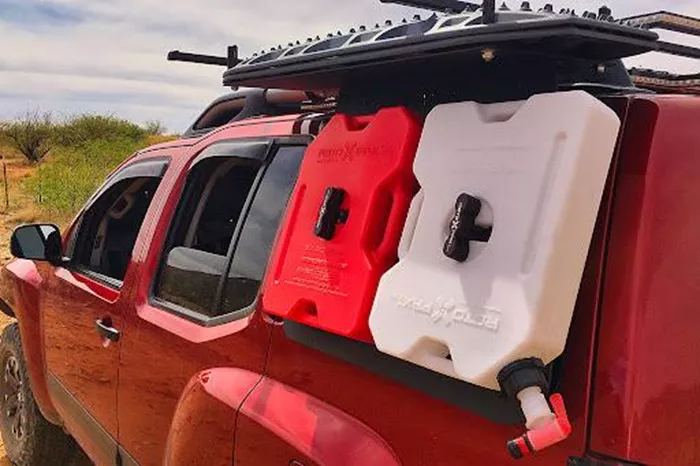Off-road gasoline is a specialized fuel designed for vehicles and equipment that operate outside of public roadways. Unlike regular gasoline, off-road gasoline is tailored to meet the unique demands of machinery used in agriculture, construction, mining, and other industrial applications. This article delves into the intricacies of off-road gasoline, its composition, applications, benefits, and regulatory considerations.
What is Off-Road Gasoline
Off-road gasoline, also known as non-road gasoline, is a type of fuel specifically formulated for use in vehicles and equipment that are not intended for use on public highways. This includes a wide range of machinery such as tractors, bulldozers, generators, and other industrial equipment. The primary distinction between off-road gasoline and regular gasoline lies in its tax status and regulatory requirements.
Composition of Off-Road Gasoline
Chemical Makeup
Off-road gasoline shares a similar chemical composition to regular gasoline, primarily consisting of hydrocarbons derived from crude oil. The key components include:
- Alkanes: Saturated hydrocarbons that provide energy through combustion.
- Cycloalkanes: Ring-structured hydrocarbons that enhance the fuel’s stability.
- Aromatics: Hydrocarbons with benzene rings that improve the octane rating.
Additives
To enhance performance and meet specific operational requirements, off-road gasoline often contains various additives:
- Detergents: Prevent the buildup of deposits in the engine.
- Antioxidants: Reduce oxidation and prolong fuel shelf life.
- Corrosion Inhibitors: Protect metal components from rust and corrosion.
- Octane Boosters: Improve combustion efficiency and engine performance.
Applications of Off-Road Gasoline
Agriculture
In the agricultural sector, off-road gasoline powers a wide range of equipment, including:
- Tractors: Essential for plowing, planting, and harvesting.
- Combine Harvesters: Used for reaping, threshing, and cleaning crops.
- Irrigation Pumps: Ensure a consistent water supply for crops.
Construction
Construction sites rely heavily on off-road gasoline for machinery such as:
- Bulldozers: Used for earthmoving and grading.
- Excavators: Essential for digging and trenching.
- Cranes: Lift and move heavy materials.
Mining
The mining industry utilizes off-road gasoline in equipment like:
- Drill Rigs: Used for exploratory drilling and resource extraction.
- Loaders: Transport mined materials to processing facilities.
- Haul Trucks: Move large quantities of ore and waste rock.
Industrial
Various industrial applications also depend on off-road gasoline, including:
- Generators: Provide backup power in remote locations.
- Forklifts: Used in warehouses and manufacturing plants.
- Compressors: Power pneumatic tools and equipment.
Benefits of Off-Road Gasoline
Enhanced Performance
Off-road gasoline is formulated to deliver optimal performance in demanding environments. Its high octane rating ensures efficient combustion, reducing the risk of engine knocking and improving overall engine performance.
Cost Efficiency
Since off-road gasoline is exempt from certain taxes imposed on regular gasoline, it is often more cost-effective for businesses that rely on non-road equipment. This tax exemption can result in significant savings, especially for industries with high fuel consumption.
Environmental Considerations
While off-road gasoline is not entirely free from environmental impact, it is subject to stringent regulations that limit harmful emissions. The use of additives and advanced refining techniques helps reduce the release of pollutants, making it a more environmentally friendly option compared to some alternative fuels.
Regulatory Compliance
Off-road gasoline must comply with specific regulatory standards to ensure safety and environmental protection. These standards vary by region but generally include limits on sulfur content, volatility, and other parameters that could affect air quality and public health.
Regulatory Landscape
Tax Exemptions
One of the defining features of off-road gasoline is its tax-exempt status. In many countries, fuels used for non-road purposes are not subject to the same excise taxes as those used on public highways. This exemption is intended to reduce the financial burden on industries that rely heavily on non-road equipment.
Environmental Regulations
Off-road gasoline is subject to environmental regulations aimed at minimizing its impact on air quality. These regulations often include:
- Sulfur Limits: Restrictions on the sulfur content to reduce sulfur dioxide emissions.
- Volatility Standards: Limits on the fuel’s volatility to prevent excessive evaporation.
- Additive Requirements: Mandates for the use of detergents and other additives to improve fuel efficiency and reduce emissions.
Labeling and Documentation
To ensure compliance with tax and environmental regulations, off-road gasoline must be properly labeled and documented. This includes:
- Color Dye: In some regions, off-road gasoline is dyed a specific color (e.g., red) to distinguish it from taxable fuels.
- Record-Keeping: Businesses must maintain accurate records of fuel purchases and usage to demonstrate compliance with regulatory requirements.
Challenges and Considerations
Availability
One of the challenges associated with off-road gasoline is its availability. Unlike regular gasoline, which is widely available at retail gas stations, off-road gasoline is typically sold through specialized distributors. This can pose logistical challenges for businesses operating in remote or rural areas.
Storage and Handling
Proper storage and handling of off-road gasoline are crucial to maintaining its quality and ensuring safety. Key considerations include:
- Storage Tanks: Use of approved storage tanks to prevent leaks and contamination.
- Temperature Control: Maintaining appropriate temperatures to prevent degradation.
- Safety Measures: Implementing safety protocols to prevent fires and spills.
Compatibility
Not all equipment is compatible with off-road gasoline. Manufacturers often specify the type of fuel required for their machinery, and using the wrong type can lead to engine damage and void warranties. It is essential to consult equipment manuals and follow manufacturer recommendations.
Conclusion
Off-road gasoline plays a vital role in powering the machinery and equipment that drive various industries, from agriculture and construction to mining and manufacturing. Its unique composition, tax-exempt status, and regulatory compliance make it a cost-effective and efficient fuel choice for non-road applications. However, challenges related to availability, storage, and compatibility must be carefully managed to ensure optimal performance and safety.

